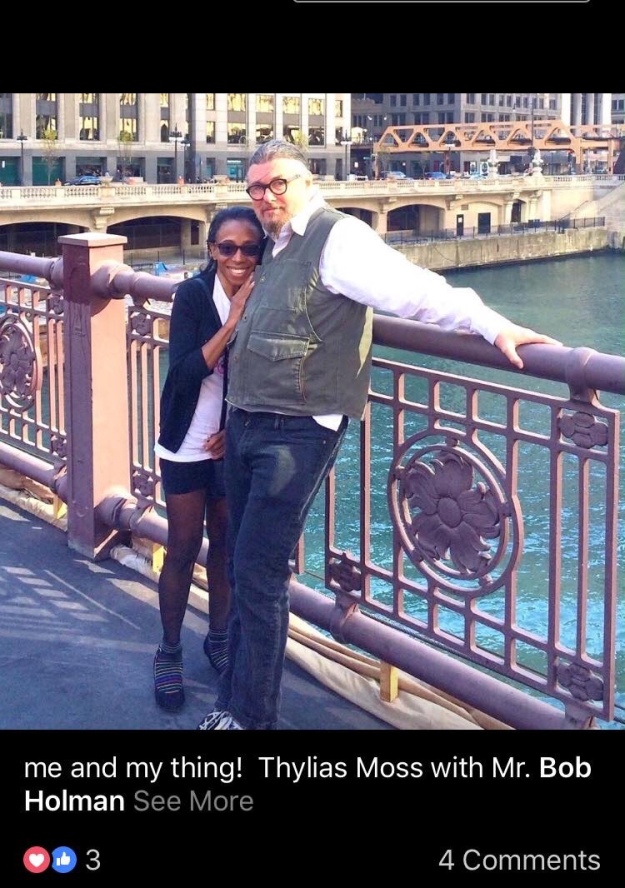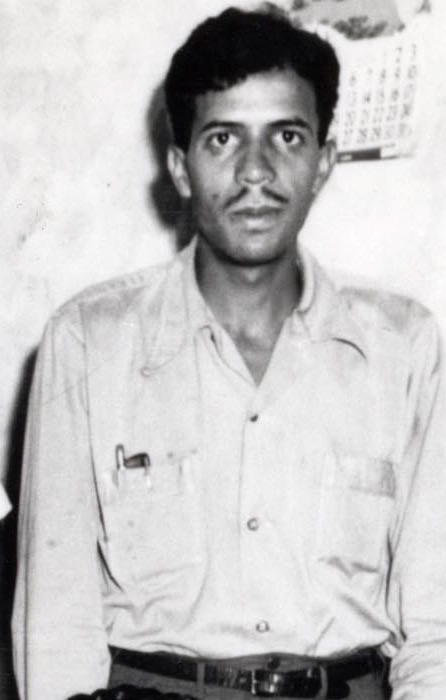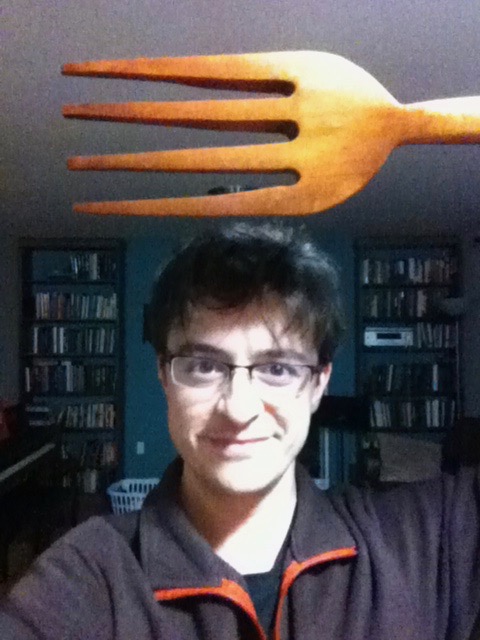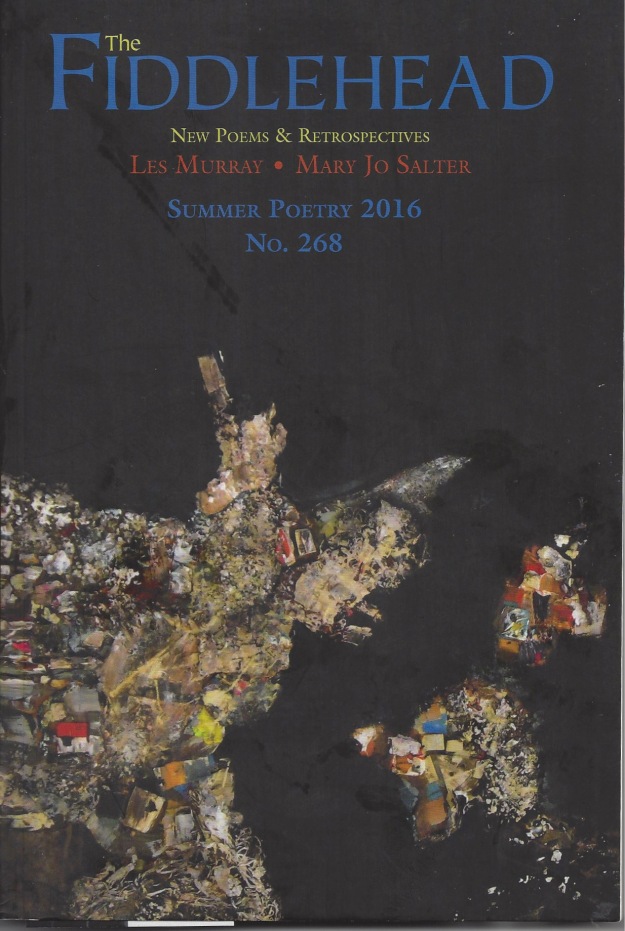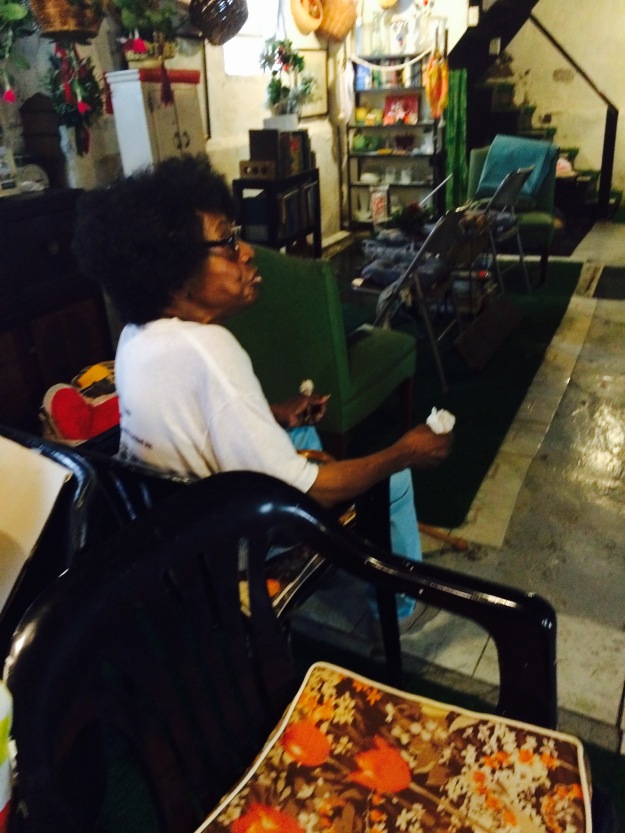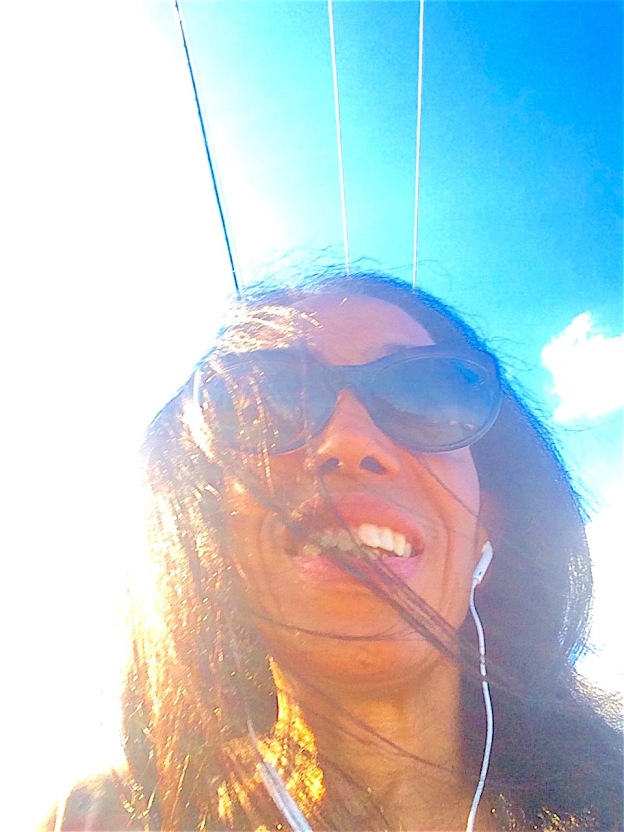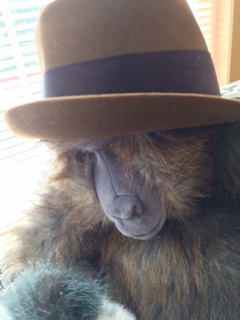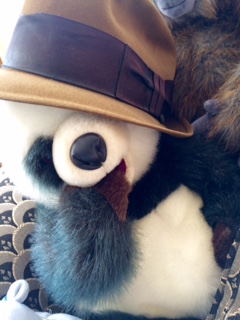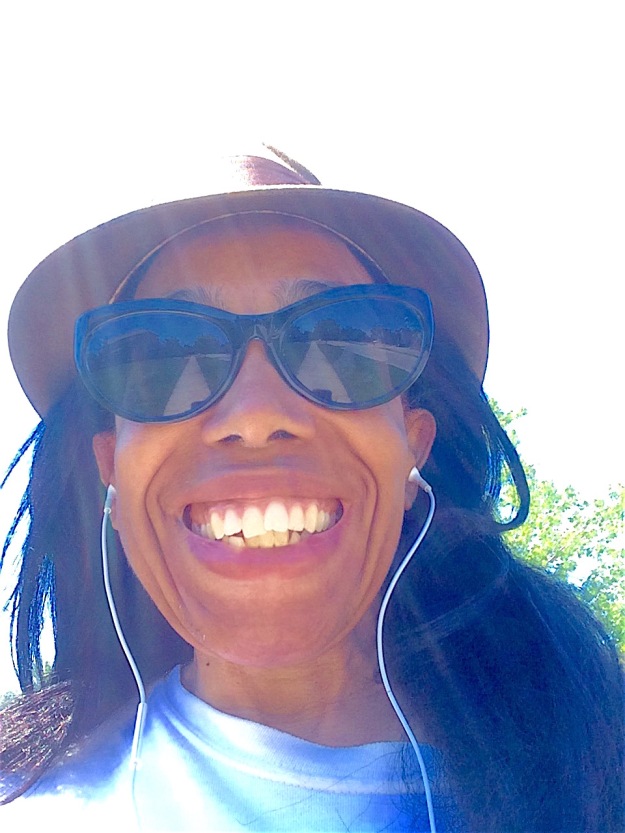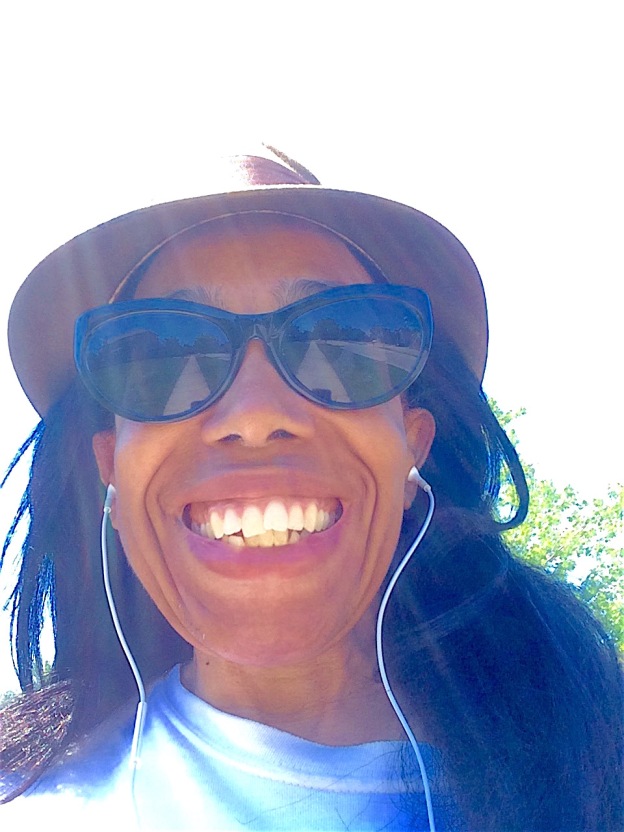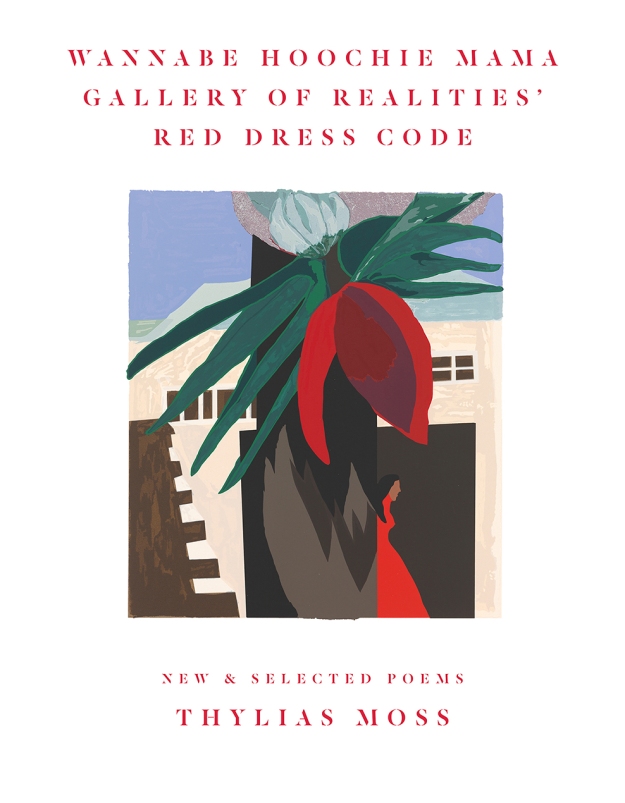On this historic night when a woman, the first woman, is the Democratic candidate for President of the United States of America, the OFFICIAL CANDIDATE FOR A MAJOR POLTICAL PARTY (next time, maybe a Native woman?); on this night, I am partcicularly glad to be a woman, and in this context, while I still await knowledge about the status of my romance novel, yes; that weighs heavily upon me, love requires this book, and I am in love with the character, maybe more than that…
Love is the way to do things; I still maintain that, and sometimes there seems to be some anarchy involved even with love that cure
so I want to share two versions of a piece of writing, an essay published in Body (copyright 1999) edited by Sharon Sloan Fiffer and Steve Fiffer, my essay:

(copyright 1999)
“SOME PRAISE FOR A LITTLE RIGHT-SIDED ANARCHY
(That is also Tribute to the Lobe Girls)”
(my essay written about the ear, portions of the proceeds from the sale of this wonderful [IMHO] anthology will be donated to charity; still availabel for sale on Amazon)
well, here is the version, as published, written about/to/for (?) my then, now ex, spouse (who never read it, unless he reads it now):
SOME PRAISE FOR A LITTLE RIGHT-SIDED ANARCHY
(THAT IS ALSO TRIBUTE TO THE LOBE GIRLS)
THYLIAS MOSS
Not in fifteen years had it happened, a short-lived (days) right-leg winter, an internal ice age situated in the bones. Alarming, yet exciting departure from the normal whose grip sometimes gets too tight and imposes an unfortunate choke hold on the extraordinary. A deep chill is also mercilessly clean; frigid winds sweep the southernmost continent pure. Polar ice caps like seals of approval. Some praise, then, for a little right-sided anarchy.
From toe to hip, sensation is gone and with it the awareness of half of my lap; a magazine resting on my right thigh hurts, an electrified Science News tries to shock the numbness out of misbehaving nerves, but the cold darts of current are excruciating in their intensity and fury. Only napped cloth like flannel or chamois, only fleece[1] is tolerable. My leg must be swaddled in it against the cutting cold of smooth percale sheets that unaffected parts of my body have not yet warmed; it must be a cushion between my skin and a piece of the thinnest onionskin paper that seems a slice of solid carbon dioxide so cold is its burn –I wince at the brutality of its weight as I persist in writing a love letter to my husband. Transfiguration is like this, sudden, without warning.
There’s a chance that, eventually, the conversion will be complete. By the inch, my skin (the body’s largest organ) will continue to lose sensory perception as I become outfitted in Antarctic finery, as I am primed for an absolute zero of being, becoming so cold that even in the temperate zone’s snowy winters, I melt like dry ice, from solid gas to vapor. Before it dissipated, the vapor from the dry ice melting a month ago in my sink (we’d brought back frozen novelties from five hundred miles away, Wesley so crazy about lemon premium ice cream) was white with ragged edges, scored patches of fog snatched from a more widespread cloudiness in an attempted liberation of sky’s preferred light and color. From my sink, stringy clouds rose, white rivers of spirochetes as I’d seen them move (making unheard pathological music) under microscopes in documentaries about Tuskegee, but these were benign and confined to the sky; these achieved atmospheric altitude. Bacterial and viral regiments invade silently, as if observing moments of silence to honor that which is under siege, to respect the victim (as the praying mantis seems a pious predator), to choose the host and not arbitrarily fall into an organic residence in which to proliferate quietly, reverently. It is strictly business when pathogens arrive. Suddenly, I have a cold.
The generations of virus (exceedingly more fertile than rabbits) neither celebrate victory nor accept defeat with noise as I sneeze (utilizing blaring defenses) and cough up phlegm green and yellow, for a few days, with infection. Sometimes there is also a dull aching in my ears, a pain both felt and heard; a gong distant and under water is what I hear while all through the course of the cold, the ear’s external appearance remains unchanged. In my eyes, some redness, also at the tip of my nose sore from blowing; an awful nasal trumpet when Wesley blows his nose to clear it of catarrh, in the process actually producing a note out of Gershwinian rhapsodies, but nevertheless, it is annoying, especially close to my ear that can’t choose not to hear it. Afterwards, Wesley usually leaves a tissue stuck in his nose and asks, “Do you love me?” Do I love him as a time like this, I think, hearing those thoughts loudly and clearly; do I love him when he’s behind a most inadequate veil and obviously feeling excessively comfortable around me–and then I start hearing Chaka Khan’s record, I Feel For You, so that’s what I say, “Wesley, I feel for you”, as seductively as I can so he’ll hear only that (for I know how consuming seduction is, and how sensitive his ears are to both what tongues–make that only my tongue– say and what my tongue does) and not the layers, drowned out by seduction,[2] where I’m listening to myself plug into the blank all the words that can fit; I’m really singing. And I keep singing while preparing the evening meal, while blood drips from my not-infrequent kitchen ineptitude–no one likes to watch me handle a knife, cutting into my knuckles when I trim asparagus stalks, blood rising to the top of the superficial nick, rather like a Mercurochrome stain, then immediately thicker and forming a suitable Rorschach blot on the bandage; I once thought of making a poster (and science project) of used Band-Aid art, but was discouraged mostly for hygienic reasons; I’d taken the wrong side in the war to eradicate germs. There was other singeing as well, the vibrato sting of injury, a pulsating my ear disregarded, the waves of sting too shallow for what my ears could do: listen as Wesley told me he knew this would happen.
Moments and movements without sound dignify the ear just as forfeiture of sensation exalts the leg. Everything that vibrates yet is unheard is either infrasonic (below frequencies of sound waves in the audible range) [3] or ultrasonic (above frequencies in the audible range). When the audible range is bypassed, the ear does not have to discriminate; it does not have to declare as musically sweet, uniform vibrations that set in motion the fluid in the cochlea’s minute ocean where those tides are translated into impulses that are what the brain interprets; what the brain hears. Nor does the ear have to take displeasure (or delight) in more chaotic vibrations and their ruggedness, their dissonance that when allowed to intervene in melody lends the texture and complexity that improve musical compositions. The ear reprieved from making such judgments becomes a vessel strictly for maintaining balance. When its only function is balance, the ear is glorified; sound remains the result of vibration, but as if all of it is ultrasonic, all of it refined; as if only the ultrahighs survive sound’s elutriation–the spirit of music camping in a sanctuary of gently vibrating leaves or in the lethargic pirouette of the ceiling fan’s low-speed quiet. Such sound is not heard, but instead gives rise to awe.
The nerves of the lower half of my body after fifteen years have again (this time for a longer spell) gone insubordinate in disregarding the brain’s classification of sensation. The nerves want to establish their own canon of sensation although they are the brain’s own tendrils for the relay of impulses, root hairs from a rutabaga of a brain. Or perhaps more like a cranial Portuguese man-of-war armed with masses of tentacles, the ones that extend to my right leg, toxic. These nerves stop speaking to my brain, adolescent nerves rebelling and broadcasting what my brain dismisses as static, so extraordinary things happen: the open Jenn-Air oven door soothes, is icy when my right leg touches it, so cooling I don’t jump from its attained 450 degrees; instead my leg photographs a ripe and spectacular (so big and bright) berry. The rush of air is a blast of menthol and mint; I am ready to do an alpine skiing ad for York Peppermint Patties.
These nerves have become tired of pleasantness; a feather one of my sons has found will torment me when he places it on my leg, drags its frozen knife-tip across my skin, and in so doing, exposes my lies to him about the incipient majesty in anything without having to turn to sadistic or masochistic explanations. The world is song I’ve said to my sons; listen. The ears would flap and try to fly if song had not captivated them. Consider, dear ones, that deaf ears are so captivated, they freeze, and then there is just that greatness available as echoes in a spiral in a shell’s many inner chambers, a whispered “ah” that never ends.
In the morning, it turns out that a man has had his hand on my thigh all night, and I did not know of this simple contact that was trying to be more and would have been more with encouragement I would have given to such a lovely request, the tracing of small blossoms; that is to say: the transfer of his fingertip bouquet to my skin, an invisible tattoo. I wake to a stroking that coincides perfectly with light’s first and early stroking of the glass; the thin pale curtains are seductive in a way they won’t be later. The light heeding the raciness of the sheerness allows shadows of birds to dive into shadows of trees, fierce and eager lovers beyond caring about an audience. I wake to a stroking that exists only visually; if the motion makes sound, it is beyond my ears’ threshold of perception although it looks more intense, more vital than the whisper of his breathing that I do hear. For the first time, I resist pleasure, gratitude, tenderness, and everything that Wesley has loaded into his fingers. For the first time–although his fingers make wells in my skin, depressions around which ridges of skin rise somewhat like crowns. Ah, he still wants to make me royalty and I seem to reject it, the loss of feeling disguised as indifference. Years ago when we were falling in love, Wesley called me princess and my ears heard, because my brain sanctioned an elevation, the ultrasonic implications of his feelings that each day sought higher expression and made demands increasingly difficult for mere bodies to fulfill; the feelings were becoming so invested with fortitude and energy as to be able to exist without us. All unheard ultrasonic music is their song. The first time he called me princess, I wanted to fold the lobe of my ear up and the helix down so as to seal the actual sound inside my head, the cilia quivering always, mesmerized like the rest of me, a most rapturous form of tinnitus.[4] I imagined that if he places his ear against mine, he would hear the resonance of his calling me and from then on would call me honey cowry or concha or precious wentletrap.
During the past fifteen years, this body has served me so well, I do nothing but praise it and the beautiful conspiracy of its systems. Conspiracy because what occurs within me are secretive adventures: my digestion[5] and thinking are invisible, and exactly what my eyes and ears, tongue, skin and nose process is not necessarily disclosed; even my respiration is mostly concealed (especially under the sweaters and coats) except for the intimacy of breath I share with those invited to share theirs with me, a child falling asleep in my arms, warm puffs rewarding my skin with the most sanitary of kisses, or my husband’s whispering in the cinema or at dinner things for my ears only.[6] As for what is made visible when I breathe in cold circumstances, that is just residue made visible by warmed exhalation colliding with winter, just carbon dioxide waste, a fibrous or cotton-candy-looking skeleton of breath, My pulse is all mine.[7]
* * *
Thank you, body, for keeping the fifteen pounds[8] gained during my last pregnancy that was shared with a tumor trying to become as large as the baby, my baby’s mute, deaf, lifeless twin, fifteen marvelous pounds that have given me a voluptuous potential I’d never earned before,[9] being in the past so lean, my legs more like reeds, carrying me always close to shorelines where herons balanced on even less than I had. The birds took off as if flight were unremarkable, but the wingspan, the fully extended stole of feathers provided profound evidence of conceit and the arrogance I assumed was required to kiss off gravity in the first place. I like when birds operate in higher levels of sky, advanced sky that seems unlike the colorless portion I stand within, sucking it endlessly and mostly soundlessly.
The thinner the plant by the pond, bird-leg thin, the faster it seemed to respond to silent breezes, breezes silent to me, but producing sound at levels only visual to me or only felt against my skin (it is as if waves of sound attempt to enter the body everywhere, but succeed only with the ear) that horripilates if the air is moving beyond my threshold of perceiving sound is sufficiently chilled–horripilation is the eruption of goose bumps, an eruption that is like the score of crazy orchestration, minute brown whole notes wildly confiscating my arms. Was my first visit to Euclid Creek also my first time envying the grass that fluttered to air music I could not hear? Dandelion seeds would become caught in chords, holding those notes until a descending scale brought them to the ground where they germinated and prepared for another sprouting. As I ran, I too set the air moving according to my rhythms, and this the grass heard too, and this the dandelion seeds danced to also, a fully-seeded plant in each of my hands as I twirled, the seeds coming loose and riding in my small spirals–a carnival of imperceptible sounds; a disturbance of air that disturbed nothing else.
At some point, it may not be how things feel that has meaning. I will know a spoon is in my hand because I see it, because I hear it scrape the bottom of a bowl, stir iced tea, but without a confirmation of the logic of other senses, I won’t know whether or not a spoon has been picked up. Left will be only abstract feeling, extrasensory love, mental orgasm, more and more imagination. It is for love of a man that I hope the neurologists are able to help me feel again what my man wants me to feel every day when he kisses me, when he holds me, as he sets out to disprove the existence of inadequacy. I will still desire him; I just won’t know that I have been satisfied, but as I always have, I will enjoy his satisfaction. I have not wanted my satisfaction to be mine alone, but consistently I have wanted to give it to him, to make it large enough to encompass him, to transform a selfishness into a generosity.
At some point I may understand, better than I ever could have without this anarchy of body, that perception is a trick. Knowing the deception of sensation, I turn to eyes and ears, assuming that even if the whole body (including taste buds) loses the sense of touch, vision and hearing can continue and will do so more intensely. There is, however, the matter of my myopia, the distortion already present in how the world looks to me, blurry with my unaided eyes as if everything grows fur. There is a clean-edged perception from six inches in front of my face to a depth of relative infinity only through corrective lenses. My ears and their no-known deficit will have to compensate, It is amazing what the body can live without successfully: limbs, sanity, movement, sight, speech, breasts, genitalia, a kidney, voice box, lung or heart so long as there are artificial replacements. An external ear isn’t absolutely essential (to lose one wouldn’t necessarily impair hearing) except, really, for the cosmetic spectacle if such eccentricity of appearance bothered the earless one.
When I was about ten, I knew a girl, Judy, who had her ears pierced the day she turned thirteen. It was a home piercing; her aunt, another teenager, sterilized a needle in the gas stove’s flame and while the needle was still hot, poked it through Judy’s lobe that was already hurting from having ice cubes held against it t anesthetize it. Straws that had been singed at each end were inserted in the fresh hole to keep it open while the ear healed. She bathed her ears in isopropyl alcohol and witch hazel every morning and night, but for all that rigorous nursing, something went wrong. Knobs started growing from the back of her ear, a cluster of irregular lumps, excresences, keloids that made wearing earrings, those 24-karat gold studs she’d bought, impossible. I thought her ears would have to be amputated, but she still had them, the keloids too, two years later and the last time I saw her. Judy, although she sometimes talked to me, mostly hung out in the circle of older girls, some of whom wore earrings so humongous and heavy, they were weights that more appropriately should have been attached to wrists or ankles. These weights stretched the lobes and widened the pierced holes so tremendously, these girls could wear pierced earrings only on wires; there was nothing on which studs and earring backs could anchor. So Judy’s friends kept a couple of pencils or pens in these holes. Or they carried lipsticks in these holes, rolled-up dollars, and one of them, Shaynee, hid cigarettes inside the money roll. The Famous and Fabulous Lobe Girls of the Rose of Sharon Baptist Church Young Adult Choir.
I love the perfection of Wesley’s ears; it is perfection because of what has become a burnt standard, the darker rim, the top of the helix that flaming vegetable oil singed (on another night, early in our marriage, of my kitchen ineptitude) when he doused the pot with water, and only after scattering the flames (that then leaped to scorch the curtains also), thought to clamp the lid on the pot and throw it off the second-floor apartment’s back porch into a bank of snow. I run my fingers along this healed rim, delighting in its flame-caused fine scallops, fluted like a tiny pie, one downsized for a mouse. Our younger son’s ears were discolored from the moment of birth, all white except for the rim, the top of the helix where the ear was so dark, it seemed he had been born with scabs; the rest of his body was golden, a richly yellow tan. The white ears persisted for four months until there was a blessing of pigment–apparently drained from the scabs (they faded to tan) and redistributed.
Wesley has mild hearing deficit in his left ear; I have to get close, as I like to anyway, to speak to him on the left, where I usually am as we walk. It is mostly, however, his right ear that receives attention as my head rests through our nights on his right shoulder, as I ride as passenger in our truck. A decorative bass clef is on the side of his head. His own hyperbola–I am in love with Wesleyan geometry, the arrangement of his points, lines, and angles, and its effects upon space that I enter, that I bend and that bend bends me as I approach him, more supple than I am at any other time. He is a mathematical concoction, a figure of what exists theoretically in numbers; a prediction and explanation of what exists within things and makes them behave as they do, as opposed to a verifiable object. This is the calculus in which I would have excelled had I been allowed to study it when I was assigned elsewhere.
At times his ear seems a study of an embryo. In fact, acupuncture points on the ear correspond to an understanding of the ear as an embryo. Rudimentary ears form just a few days after conception, and the cochlea completes its development before birth.[10] Wesley’s ear is a map to all that he is. Its auditory canal all dark with a scant covering of cerumen (the wax that traps foreign bodies, such as insects and dust, and attempts to prevent their deeper penetration. His earwax is as moist and dark as molasses but doesn’t taste sweet, whereas mine is crumbly and barely amber) seems an ideal confessional. I love our time in bed, our voices low, so that our sons hear nothing but a soothing hum, my mouth near his ear because of how he holds me, my head an egg in his nest of shoulder, and I speak into that confessional, saying everything I need to say, everything he needs to hear, filling his head with resonance.
I have said to him that his ear is a partial flower, a single petal, part of an iris, dark, as dark as the wax his ear contains, because it is night and I can’t see color anymore. His ear is a night flower; it blooms only at night; it unfolds and releases a powerful fragrance that lures the nocturnal bugs, me among them, seeking that Aqua Velva bite and nectar.
There are night-blooming botanical rarities that many people have never seen, rarities for which it is worth losing sleep to hurry sundown and see the pale flowers open for the luna and white-lined sphinx moths, all of the moon flowers opening at once, the sounding of gauze trumpets, a unison oh so remarkable, unified to a ten-thousandth of a second. When they open, I open my body to Wesley, unified to that same ten-thousandth.[11]
Each day he comes home, from the office, to the only comfort that sustains him, to a castle of ruled by symbiosis. Now that numbness again is part of this royal treatment, that sweet man checks my bath, testing the water since today I perceive only coolness, relief, paradigms of beneficent expression–and nothing else in the world.
[1] The word fleece always comforts me with the thought of the generosity of lambs. I use this word just to evoke comfort when subconsciously I am tuned to needing comfort. I think much (both frequently and highly) of this generosity, this innocent dispensation that remains in force into a sheep’s maturity. An innocence retained. My ears as well are sensitive to the slightest emotional tilting out of balance, and also to the spatial location, so hearing the whisper of fleece inside my head restores; hearing the quiet of my thinking makes of my brain a chapel that dispenses equilibrium and renewal. As I clean my blinds by running a lamb’s wool duster back and forth over them, the wool’s lanolin holds the dust securely, dust composed of the music of existing, the ultimate disintegration of things into superb granular substance; to scatter dust is to release a slur of hemidemisemiquavers (sixty-fourth notes) into the air. With my wrist’s motion, I am making music; the duster is like a fluffy microphone although it is my perception and imagination that are amplified, not volume or my hearing. A conductor brandishing arms, hands, and baton makes a music separate from that of the orchestral instruments: a transcending, unheard, acoustically pure song exhausting the audible high pitches and still ascending, accessing summits where sound is divinity. Sometimes I watch videos of symphony orchestras with the sound muted so as to showcase only the comfort of this effect.
[2] Other than during such seduction, he is polyphonic, as human hearing is designed to be, able to hear as many sounds as are present simultaneously; pitch, location, distance, and intensity helping the brain distinguish each sound, the waves entering the ear at different angles, bouncing from one part of the auricle (external ear) to another before falling into the auditory canal.
[3] Some infrasonic vibrations can be felt, however, since they occur within a range in which some parts of the body resonate and make their own infrasonic hymns. Despite a human tendency toward intellectual chauvinism, our hearing is quite limited among animals (eyesight too, as we, unlike cats, for instance, lose color perception in the dark); dolphins, bats, and cats can hear well into what for humans is the ultrasonic range, and dogs can hear both higher and lower pitches than people can hear.
[4] Tinnitus otherwise can be maddening, I’ve heard, the hearing of nonexistent sound, perhaps a constant flute, a single measure of a musical piece repeated and repeated, each time further from perfection. Or a sound more harsh and equally unrelenting, wasp buzz or a wolf call at all hours, perpetual percussion: gong and cymbal, the sound of a migraine headache’s pulsation pushed limbically into audibility. Some researchers believe these sounds originate in the inner ear and are boosted by the brain’s limbic system which is responsible for emptions.
[5] Excluding belches and anal flatuses that I never laughed at even when I was not the source, for the sound that reached my ear was that of a tuba, especially the attempts of a boy (that I liked) to play one. He walked home from school trying to play it, letting the tuba do all the awkward talking, its voice deeper than his would be for years. As for the odor, it was powerful but faded quickly, so hardly powerful at all–a charming little paradox. There is also the audible borborybmus which is hunger pangs or a rumbling in the intestines such as what follows the ingestion of dairy products by the lactose-intolerant.
[6] “For my ears only” yet what he says is hardly original and probably not uttered for the first time; he has loved other women and told them things fir their ears only that delighted their ears probably no less (though I prefer to believe less) than my ears are delighted. It is fascinating that our secrets, our privacy, our so stunning intimacy is not unique–I cannot prove that what I hear is different form what other women have heard when he read to them the same passages of poem written by him (and mostly by others), but I would insist that loving him has caused a reshaping of the cochlea so that his voice is brighter than any other. So too has my skin been reconfigured, its nerves reprogrammed so that his breath and touch accomplish more (except where there is anarchy). My ears are combination locks, that is to say.
[7] And that s why it is appropriate that my primary are physician or the nurse-practitioner as if she make take it.
[8] That number again–repetitions always try to speak to me of a sacred potential, the repetition disproving accident. Symmetry is of course a form of repetition. And habits, say the habit of these footnotes, these branchings and digressions that seek to copy the anarchy of the way the arms and legs digress from the trunk, the ovaries from the uterus, the digits from the feet and hands, the ear and hair from the head.
[9] I can almost hear my hips that now are as round as bass clefs and their promise of rich sound.
[10] Here’s something else about the cochlea that I read somewhere, I think in Newsday: the cochleas of lesbians apparently become masculinized during gestation and are unlike the cochleas of heterosexual women; they are more like, the study found, the inner ears of men.
[11] I remember a girl I read about once–I think her name was Katie–who depended upon such night shows, who can never be a sun worshipper because ultraviolet radiation (the visible spectrum is not a problem–except that it is part of the electromagnetic range of sunlight) blisters and ulcerates her skin; light is fatal to her, so hers is the world of shadow, the quieter world when most things sleep, as if light also controls volume. Crickets seem more powerful at night, theirs voices more urgent. The sound of owls emerges, sound of wolves, sound of the settling of wood, sound of single drops of water, of my mother calling me home, as she used to (my bedtime), from many miles away; even the sound of caterpillars still polishing off in unison at dusk the needles of evergreen shrubs and the young May leaves become more pronounced. In the darkness is the enhanced demarcation of sound, is Katie’s concert. In the moonlight is Katie’s vacation, in the evening is her triumph over xeroderma pigmentosum (her extreme light sensitivity); in the evening is the rising of her award of the precious silver medal with it s any maria, all those splendid shelters from illumination, black heavens. She loves the ahs, depends on the hushes.
and the revised Thomas Higginson version, (since that is where my heart now is –always with this character, a prototype for the real man I so want in my life)
SOME PRAISE FOR A LITTLE RIGHT-SIDED ANARCHY
(THAT IS ALSO TRIBUTE TO THE LOBE GIRLS)
THYLIAS MOSS
Not in fifteen years had it happened, a short-lived (days) right-leg winter, an internal ice age situated in the bones. Alarming, yet exciting departure from the normal whose grip sometimes gets too tight and imposes an unfortunate choke hold on the extraordinary. A deep chill is also mercilessly clean; frigid winds sweep the southernmost continent pure. Polar ice caps like seals of approval. Some praise, then, for a little right-sided anarchy.
From toe to hip, sensation is gone and with it the awareness of half of my lap; a magazine resting on my right thigh hurts, an electrified Science News tries to shock the numbness out of misbehaving nerves, but the cold darts of current are excruciating in their intensity and fury. Only napped cloth like flannel or chamois, only fleece[1] is tolerable. My leg must be swaddled in it against the cutting cold of smooth percale sheets that unaffected parts of my body have not yet warmed; it must be a cushion between my skin and a piece of the thinnest onionskin paper that seems a slice of solid carbon dioxide so cold is its burn –I wince at the brutality of its weight as I persist in writing a love letter to my husband. Transfiguration is like this, sudden, without warning.
There’s a chance that, eventually, the conversion will be complete. By the inch, my skin (the body’s largest organ) will continue to lose sensory perception as I become outfitted in Antarctic finery, as I am primed for an absolute zero of being, becoming so cold that even in the temperate zone’s snowy winters, I melt like dry ice, from solid gas to vapor. Before it dissipated, the vapor from the dry ice melting a month ago in my sink (we’d brought back frozen novelties from five hundred miles away, Wesley so crazy about lemon premium ice cream) was white with ragged edges, scored patches of fog snatched from a more widespread cloudiness in an attempted liberation of sky’s preferred light and color. From my sink, stringy clouds rose, white rivers of spirochetes as I’d seen them move (making unheard pathological music) under microscopes in documentaries about singinggee, but these were benign and confined to the sky; these achieved atmospheric altitude. Bacterial and viral regiments invade silently, as if observing moments of silence to honor that which is under siege, to respect the victim (as the praying mantis seems a pious predator), to choose the host and not arbitrarily fall into an organic residence in which to proliferate quietly, reverently. It is strictly business when pathogens arrive. Suddenly, I have a cold.
The generations of virus (exceedingly more fertile than rabbits) neither celebrate victory nor accept defeat with noise as I sneeze (utilizing blaring defenses) and cough up phlegm green and yellow, for a few days, with infection. Sometimes there is also a dull aching in my ears, a pain both felt and heard; a gong distant and under water is what I hear while all through the course of the cold, the ear’s external appearance remains unchanged. In my eyes, some redness, also at the tip of my nose sore from blowing; an awful nasal trumpet when Thomas blows his nose to clear it of catarrh, in the process actually producing a note out of Gershwinian rhapsodies, but nevertheless, it is annoying, especially close to my ear that can’t choose not to hear it. Afterwards, Thomas usually leaves a tissue stuck in his nose and asks, “Do you love me?” Do I love him as a time like this, I think, hearing those thoughts loudly and clearly; do I love him when he’s behind a most inadequate veil and obviously feeling excessively comfortable around me–and then I start hearing Chaka Khan’s record, I Feel For You, so that’s what I say, “Thomas, I feel for you, as seductively as I can so he’ll hear only that (for I know how consuming seduction is, and how sensitive his ears are to both what tongues–make that only my tongue– say and what my tongue does) and not the layers, drowned out by seduction,[2] where I’m listening to myself plug into the blank all the words that can fit; I’m really singing. And I keep singing while preparing the evening meal, while blood drips from my not-infrequent kitchen ineptitude–no one likes to watch me handle a knife, cutting into my knuckles when I trim asparagus stalks, blood rising to the top of the superficial nick, rather like a Mercurochrome stain, then immediately thicker and forming a suitable Rorschach blot on the bandage; I once thought of making a poster (and science project) of used Band-Aid art, but was discouraged mostly for hygienic reasons; I’d taken the wrong side in the war to eradicate germs. There was other singeing as well, the vibrato sting of injury, a pulsating my ear disregarded, the waves of sting too shallow for what my ears could do: listen as Thomas told me he knew this would happen.
Moments and movements without sound dignify the ear just as forfeiture of sensation exalts the leg. Everything that vibrates yet is unheard is either infrasonic (below frequencies of sound waves in the audible range)[3] or ultrasonic (above frequencies in the audible range). When the audible range is bypassed, the ear does not have to discriminate; it does not have to declare as musically sweet, uniform vibrations that set in motion the fluid in the cochlea’s minute ocean where those tides are translated into impulses that are what the brain interprets; what the brain hears. Nor does the ear have to take displeasure (or delight) in more chaotic vibrations and their ruggedness, their dissonance that when allowed to intervene in melody lends the texture and complexity that improve musical compositions. The ear reprieved from making such judgments becomes a vessel strictly for maintaining balance. When its only function is balance, the ear is glorified; sound remains the result of vibration, but as if all of it is ultrasonic, all of it refined; as if only the ultrahighs survive sound’s elutriation–the spirit of music camping in a sanctuary of gently vibrating leaves or in the lethargic pirouette of the ceiling fan’s low-speed quiet. Such sound is not heard, but instead gives rise to awe.
The nerves of the lower half of my body after fifteen years have again (this time for a longer spell) gone insubordinate in disregarding the brain’s classification of sensation. The nerves want to establish their own canon of sensation although they are the brain’s own tendrils for the relay of impulses, root hairs from a rutabaga of a brain. Or perhaps more like a cranial Portuguese man-of-war armed with masses of tentacles, the ones that extend to my right leg, toxic. These nerves stop speaking to my brain, adolescent nerves rebelling and broadcasting what my brain dismisses as static, so extraordinary things happen: the open Jenn-Air oven door soothes, is icy when my right leg touches it, so cooling I don’t jump from its attained 450 degrees; instead my leg photographs a ripe and spectacular (so big and bright) berry. The rush of air is a blast of menthol and mint; I am ready to do an alpine skiing ad for York Peppermint Patties.
These nerves have become tired of pleasantness; a feather one of my sons has found will torment me when he places it on my leg, drags its frozen knife-tip across my skin, and in so doing, exposes my lies to him about the incipient majesty in anything without having to turn to sadistic or masochistic explanations. The world is song I’ve said to my sons; listen. The ears would flap and try to fly if song had not captivated them. Consider, dear ones, that deaf ears are so captivated, they freeze, and then there is just that greatness available as echoes in a spiral in a shell’s many inner chambers, a whispered “ah” that never ends.
In the morning, it turns out that a man has had his hand on my thigh all night, and I did not know of this simple contact that was trying to be more and would have been more with encouragement I would have given to such a lovely request, the tracing of small blossoms; that is to say: the transfer of his fingertip bouquet to my skin, an invisible tattoo. I wake to a stroking that coincides perfectly with light’s first and early stroking of the glass; the thin pale curtains are seductive in a way they won’t be later. The light heeding the raciness of the sheerness allows shadows of birds to dive into shadows of trees, fierce and eager lovers beyond caring about an audience. I wake to a stroking that exists only visually; if the motion makes sound, it is beyond my ears’ threshold of perception although it looks more intense, more vital than the whisper of his breathing that I do hear. For the first time, I resist pleasure, gratitude, tenderness, and everything that Thomas has loaded into his fingers. For the first time–although his fingers make wells in my skin, depressions around which ridges of skin rise somewhat like crowns. Ah, he still wants to make me royalty and I seem to reject it, the loss of feeling disguised as indifference. Years ago when we were falling in love, Thomas called me princess and my ears heard, because my brain sanctioned an elevation, the ultrasonic implications of his feelings that each day sought higher expression and made demands increasingly difficult for mere bodies to fulfill; the feelings were becoming so invested with fortitude and energy as to be able to exist without us. All unheard ultrasonic music is their song. The first time he called me princess, I wanted to fold the lobe of my ear up and the helix down so as to seal the actual sound inside my head, the cilia quivering always, mesmerized like the rest of me, a most rapturous form of tinnitus.[4] I imagined that if he places his ear against mine, he would hear the resonance of his calling me and from then on would call me honey cowry or concha or precious wentletrap.
During the past fifteen years, this body has served me so well, I do nothing but praise it and the beautiful conspiracy of its systems. Conspiracy because what occurs within me are secretive adventures: my digestion[5] and thinking are invisible, and exactly what my eyes and ears, tongue, skin and nose process is not necessarily disclosed; even my respiration is mostly concealed (especially under the sweaters and coats) except for the intimacy of breath I share with those invited to share theirs with me, a child falling asleep in my arms, warm puffs rewarding my skin with the most sanitary of kisses, or my husbands whispering in the cinema or at dinner things for my ears only.[6] As for what is made visible when I breathe in cold circumstances, that is just residue made visible by warmed exhalation colliding with winter, just carbon dioxide waste, a fibrous or cotton-candy-looking skeleton of breath, My pulse is all mine.[7]
* * *
Thank you, body, for keeping the fifteen pounds[8] gained during my last pregnancy that was shared with a tumor trying to become as large as the baby, my baby’s mute, deaf, lifeless twin, fifteen marvelous pounds that have given me a voluptuous potential I’d never earned before,[9] being in the past so lean, my legs more like reeds, carrying me always close to shorelines where herons balanced on even less than I had. The birds took off as if flight were unremarkable, but the wingspan, the fully extended stole of feathers provided profound evidence of conceit and the arrogance I assumed was required to kiss off gravity in the first place. I like when birds operate in higher levels of sky, advanced sky that seems unlike the colorless portion I stand within, sucking it endlessly and mostly soundlessly.
The thinner the plant by the pond, bird-leg thin, the faster it seemed to respond to silent breezes, breezes silent to me, but producing sound at levels only visual to me or only felt against my skin (it is as if waves of sound attempt to enter the body everywhere, but succeed only with the ear) that horripilates if the air is moving beyond my threshold of perceiving sound is sufficiently chilled– is the eruption of goose bumps, an eruption that is like the score of crazy orchestration, minute brown whole notes wildly confiscating my arms. Was my first visit to Euclid Creek also my first time envying the grass that fluttered to air music I could not hear? Dandelion seeds would become caught in chords, holding those notes until a descending scale brought them to the ground where they germinated and prepared for another sprouting. As I ran, I too set the air moving according to my rhythms, and this the grass heard too, and this the dandelion seeds danced to also, a fully-seeded plant in each of my hands as I twirled, the seeds coming loose and riding in my small spirals–a carnival of imperceptible sounds; a disturbance of air that disturbed nothing else.
At some point, it may not be how things feel that has meaning. I will know a spoon is in my hand because I see it, because I hear it scrape the bottom of a bowl, stir iced tea, but without a confirmation of the logic of other senses, I won’t know whether or not a spoon has been picked up. Left will be only abstract feeling, extrasensory love, mental orgasm, more and more imagination. It is for love of a man that I hope the neurologists are able to help me feel again what my man wants me to feel every day when he kisses me, when he holds me, as he sets out to disprove the existence of inadequacy. I will still desire him; I just won’t know that I have been satisfied, but as I always have, I will enjoy his satisfaction. I have not wanted my satisfaction to be mine alone, but consistently I have wanted to give it to him, to make it large enough to encompass him, to transform a selfishness into a generosity.
At some point I may understand, better than I ever could have without this anarchy of body, that perception is a trick. Knowing the deception of sensation, I turn to eyes and ears, assuming that even if the whole body (including taste buds) loses the sense of touch, vision and hearing can continue and will do so more intensely. There is, however, the matter of my myopia, the distortion already present in how the world looks to me, blurry with my unaided eyes as if everything grows fur. There is a clean-edged perception from six inches in front of my face to a depth of relative infinity only through corrective lenses. My ears and their no-known deficit will have to compensate, It is amazing what the body can live without successfully: limbs, sanity, movement, sight, speech, breasts, genitalia, a kidney, voice box, lung or heart so long as there are artificial replacements. An external ear isn’t absolutely essential (to lose one wouldn’t necessarily impair hearing) except, really, for the cosmetic spectacle if such eccentricity of appearance bothered the earless one.
When I was about ten, I knew a girl, Judy, who had her ears pierced the day she turned thirteen. It was a home piercing; her aunt, another teenager, sterilized a needle in the gas stove’s flame and while the needle was still hot, poked it through Judy’s lobe that was already hurting from having ice cubes held against it t anesthetize it. Straws that had been singed at each end were inserted in the fresh hole to keep it open while the ear healed. She bathed her ears in isopropyl alcohol and witch hazel every morning and night, but for all that rigorous nursing, something went wrong. Knobs started growing from the back of her ear, a cluster of irregular lumps, excresences, keloids that made wearing earrings, those 24-karat gold studs she’d bought, impossible. I thought her ears would have to be amputated, but she still had them, the keloids too, two years later and the last time I saw her. Judy, although she sometimes talked to me, mostly hung out in the circle of older girls, some of whom wore earrings so humongous and heavy, they were weights that more appropriately should have been attached to wrists or ankles. These weights stretched the lobes and widened the pierced holes so tremendously, these girls could wear pierced earrings only on wires; there was nothing on which studs and earring backs could anchor. So Judy’s friends kept a couple of pencils or pens in these holes. Or they carried lipsticks in these holes, rolled-up dollars, and one of them, Shaynee, hid cigarettes inside the money roll. The Famous and Fabulous Lobe Girls of the Rose of Sharon Baptist Church Young Adult Choir.
I love the perfection of Thomas’s ears; it is perfection because of what has become a burnt standard, the darker rim, the top of the helix that flaming vegetable oil singed (on another night, early in our marriage, of my kitchen ineptitude) when he doused the pot with water, and only after scattering the flames (that then leaped to scorch the curtains also), thought to clamp the lid on the pot and throw it off the second-floor apartment’s back porch into a bank of snow. I run my fingers along this healed rim, delighting in its flame-caused fine scallops, fluted like a tiny pie, one downsized for a mouse. Our younger son’s ears were discolored from the moment of birth, all white except for the rim, the top of the helix where the ear was so dark, it seemed he had been born with scabs; the rest of his body was golden, a richly yellow tan. The white ears persisted for four months until there was a blessing of pigment–apparently drained from the scabs (they faded to tan) and redistributed.
Thomas has mild hearing deficit in his left ear; I have to get close, as I like to anyway, to speak to him on the left, where I usually am as we walk. It is mostly, however, his right ear that receives attention as my head rests through our nights on his right shoulder, as I ride as passenger in our truck. A decorative bass clef is on the side of his head. His own hyperbola–I am in love with Thomasan geometry, the arrangement of his points, lines, and angles, and its effects upon space that I enter, that I bend and that bends me as I approach him, more supple than I am at any other time. He is a mathematical concoction, a figure of what exists theoretically in numbers; a prediction and explanation of what exists within things and makes them behave as they do, as opposed to a verifiable object. This is the calculus in which I would have excelled had I been allowed to study it when I was assigned elsewhere.
At times his ear seems a study of an embryo. In fact, acupuncture points on the ear correspond to an understanding of the ear as an embryo. Rudimentary ears form just a few days after conception, and the cochlea completes its development before birth.[10] Thomas’s ear is a map to all that he is. Its auditory canal all dark with a scant covering of cerumen (the wax that traps foreign bodies, such as insects and dust, and attempts to prevent their deeper penetration. His earwax is as moist and dark as molasses but doesn’t taste sweet, whereas mine is crumbly and barely amber) seems an ideal confessional. I love our time in bed, our voices low, so that our sons hear nothing but a soothing hum, my mouth near his ear because of how he holds me, my head an egg in his nest of shoulder, and I speak into that confessional, saying everything I need to say, everything he needs to hear, filling his head with resonance.
I have said to him that his ear is a partial flower, a single petal, part of an iris, dark, as dark as the wax his ear contains, because it is night and I can’t see color anymore. His ear is a night flower; it blooms only at night; it unfolds and releases a powerful fragrance that lures the nocturnal bugs, me among them, seeking that Dakar bite and nectar.
There are night-blooming botanical rarities that many people have never seen, rarities for which it is worth losing sleep to hurry sundown and see the pale flowers open for the luna and white-lined sphinx moths, all of the moon flowers opening at once, the sounding of gauze trumpets, a unison oh so remarkable, unified to a ten-thousandth of a second. When they open, I open my body to Thomas, unified to that same ten-thousandth.[11]
Each day he comes home, from the office, to the only comfort that sustains him, to a castle of ruled by symbiosis. Now that numbness again is part of this royal treatment, that sweet man checks my bath, testing the water since today I perceive only coolness, relief, paradigms of beneficent expression–and nothing else in the world.
[1] The word fleece always comforts me with the thought of the generosity of lambs. I use this word just to evoke comfort when subconsciously I am tuned to needing comfort. I think much (both frequently and highly) of this generosity, this innocent dispensation that remains in force into a sheep’s maturity. An innocence retained. My ears as well are sensitive to the slightest emotional tilting out of balance, and also to the spatial location, so hearing the whisper of fleece inside my head restores; hearing the quiet of my thinking makes of my brain a chapel that dispenses equilibrium and renewal. As I clean my blinds by running a lamb’s wool duster back and forth over them, the wool’s lanolin holds the dust securely, dust composed of the music of existing, the ultimate disintegration of things into superb granular substance; to scatter dust is to release a slur of hemidemisemiquavers (sixty-fourth notes) into the air. With my wrist’s motion, I am making music; the duster is like a fluffy microphone although it is my perception and imagination that are amplified, not volume or my hearing. A conductor brandishing arms, hands, and baton makes a music separate from that of the orchestral instruments: a transcending, unheard, acoustically pure song exhausting the audible high pitches and still ascending, accessing summits where sound is divinity. Sometimes I watch videos of symphony orchestras with the sound muted so as to showcase only the comfort of this effect.
[2] Other than during such seduction, he is polyphonic, as human hearing is designed to be, able to hear as many sounds as are present simultaneously; pitch, location, distance, and intensity helping the brain distinguish each sound, the waves entering the ear at different angles, bouncing from one part of the auricle (external ear) to another before falling into the auditory canal.
[3] Some infrasonic vibrations can be felt, however, since they occur within a range in which some parts of the body resonate and make their own infrasonic hymns. Despite a human tendency toward intellectual chauvinism, our hearing is quite limited among animals (eyesight too, as we, unlike cats, for instance, lose color perception in the dark); dolphins, bats, and cats can hear well into what for humans is the ultrasonic range, and dogs can hear both higher and lower pitches than people can hear.
[4] Tinnitus otherwise can be maddening, I’ve heard, the hearing of nonexistent sound, perhaps a constant flute, a single measure of a musical piece repeated and repeated, each time further from perfection. Or a sound more harsh and equally unrelenting, wasp buzz or a wolf call at all hours, perpetual percussion: gong and cymbal, the sound of a migraine headache’s pulsation pushed limbically into audibility. Some researchers believe these sounds originate in the inner ear and are boosted by the brain’s limbic system which is responsible for emptions.
[5] Excluding belches and anal flatuses that I never laughed at even when I was not the source, for the sound that reached my ear was that f a tuba, especially the attempts of a boy (that I liked) to play one. He walked home from school trying to play it, letting the tuba do all the awkward talking, its voice deeper than his would be for years. As for the odor, it was powerful but faded quickly, so hardly powerful at all–a charming little paradox. There is also the audible borborybmus which is hunger pangs or a rumbling in the intestines such as what follows the ingestion of dairy products by the lactose-intolerant.
[6] “For my ears only” yet what he says is hardly original and probably not uttered for the first time; he has loved other women and told them things fir their ears only that delighted their ears probably no less (though I prefer to believe less) than my ears are delighted. It is fascinating that our secrets, our privacy, our so stunning intimacy is not unique–I cannot prove that what I hear is different from what other women have heard when he read to them the same passages of poem written by him (and mostly by others), but I would insist that loving him has caused a reshaping of the cochlea so that his voice is brighter than any other. So too has my skin been reconfigured, its nerves reprogrammed so that his breath and touch accomplish more (except where there is anarchy). My ears are combination locks, that is to say.
[7] And that’s why it is appropriate that my primary are physician or the nurse-practitioner as if she make take it.
[8] That number again–repetitions always try to speak to me of a sacred potential, the repetition disproving accident. Symmetry is of course a form of repetition. And habits, say the habit of these footnotes, these branchings and digressions that seek to copy the anarchy of the way the arms and legs digress from the trunk, the ovaries from the uterus, the digits from the feet and hands, the ear and hair from the head.
[9] I can almost hear my hips that now are as round as bass clefs and their promise of rich sound.
[10] Here’s something else about the cochlea that I read somewhere, I think in Newsday: the cochleas of lesbians apparently become masculinized during gestation and are unlike the cochleas of heterosexual women; they are more like, the study found, the inner ears of men.
[11] I remember a girl I read about once–I think her name was Katie–who depended upon such night shows, who can never be a sun worshipper because ultraviolet radiation (the visible spectrum is not a problem–except that it is part of the electromagnetic range of sunlight) blisters and ulcerates her skin; light is fatal to her, so hers is the world of shadow, the quieter world when most things sleep, as if light also controls volume. Crickets seem more powerful at night, theirs voices more urgent. The sound of owls emerges, sound of wolves, sound of the settling of wood, sound of single drops of water, of my mother calling me home, as she used to (my bedtime), from many miles away; even the sound of still polishing off in unison at dusk the needles of evergreen shrubs and the young May leaves become more pronounced. In the darkness is the enhanced demarcation of sound, is Katie’s concert. In the moonlight is Katie’s vacation, in the evening is her triumph over xeroderma pigmentosum (her extreme light sensitivity); in the evening is the rising of her award of the precious silver medal with it s any maria, all those splendid shelters from illumination, black heavens. She loves the ahs, depends on the hushes.








